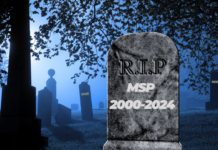Absolute Software Corporation, the leading provider of firmware-embedded endpoint security and management solutions, today announced it has reached a settlement with Stealth Signal (now known as XTool Mobile Security, Inc.) by way of a stipulated judgment. The agreed damages were $5.17m USD and Stealth Signal satisfied the judgment by granting Absolute a 30 day option to acquire all of the assets of Stealth Signal at no additional cost. Stealth Signal also agreed to begin the steps to dissolve the company within 60 days. The monetary damages in the final judgment have not been recorded as an asset as Absolute believes Stealth Signal has no material assets.
Accompanying the monetary damages will be an injunction permanently restraining and enjoining Stealth Signal from making, using, offering to sell, selling or importing into the United States products infringing Absolute Patents.
In October 2011, the US Court of Appeals reversed the District Court’s summary judgment ruling that Stealth Signal did not infringe Absolute Patents (U.S. Patent Nos. 6,244,758, 6,300,863, and 6,507,914) and remanded the issue of whether Stealth Signal is infringing Absolute Patents to trial. The Court of Appeals also affirmed the District Court’s summary judgment that Absolute did not infringe Stealth Signal Patent (U.S. Patent No. 5,406,269), as Stealth Signal had claimed.
“We are glad to have reached a settlement in this case following the US Court of Appeals decision on this matter as it validates our growing patent portfolio and innovative Computrace technology platform,” stated John Livingston, Chairman and Chief Executive Officer at Absolute Software. “The decision by the Court and subsequent settlement reinforces our position that Absolute is indeed the true inventor and market leader that pioneered the development of the remote location tracking and anti-theft category for electronic devices. We will continue to offer patent licenses to those who wish to deliver similar functionality in the marketplace. Equally, we will continue to vigorously defend our patents as required.”












